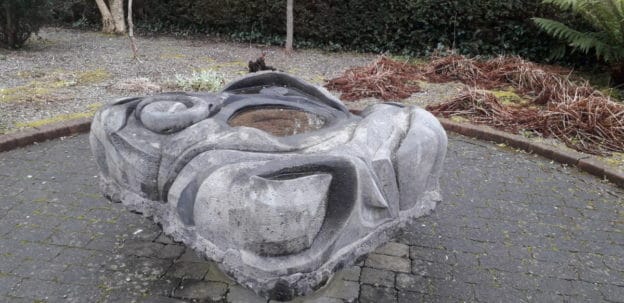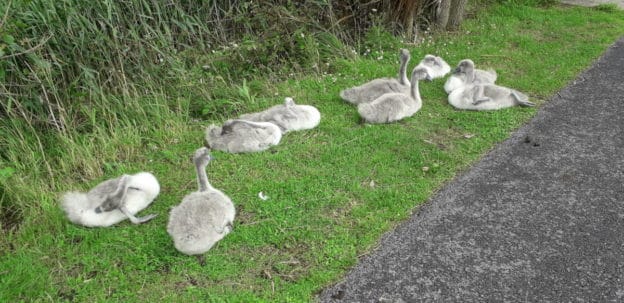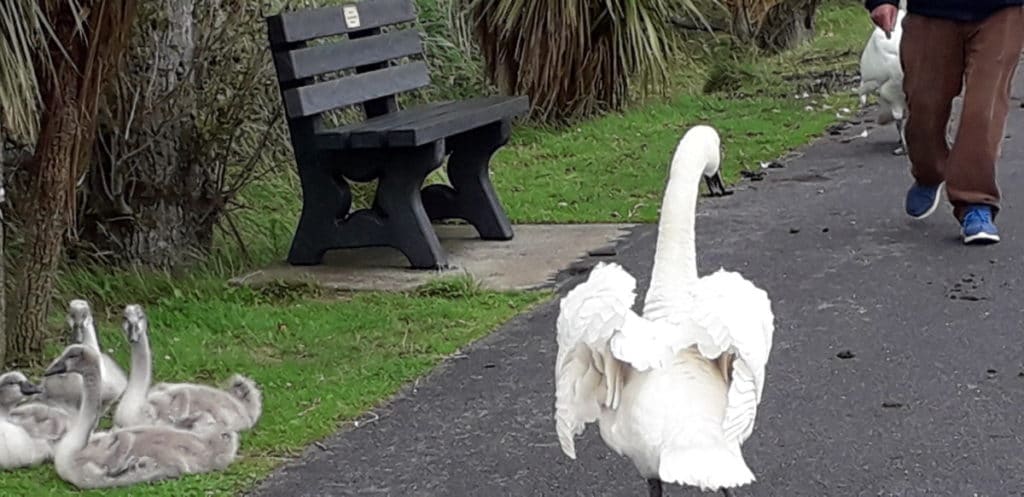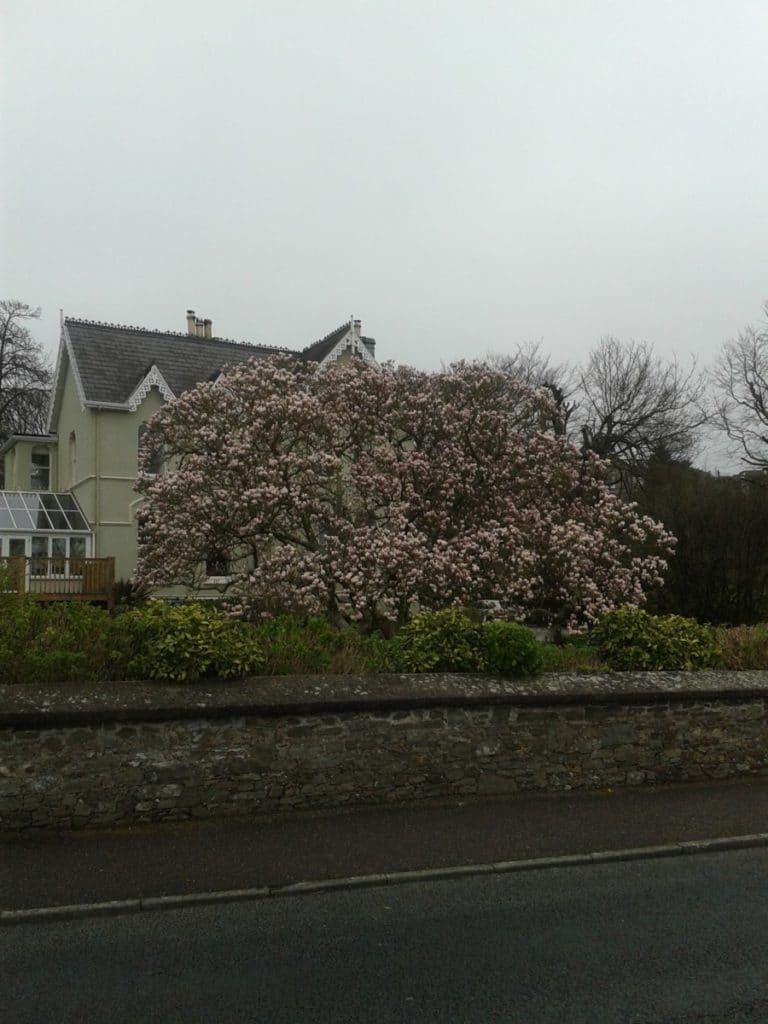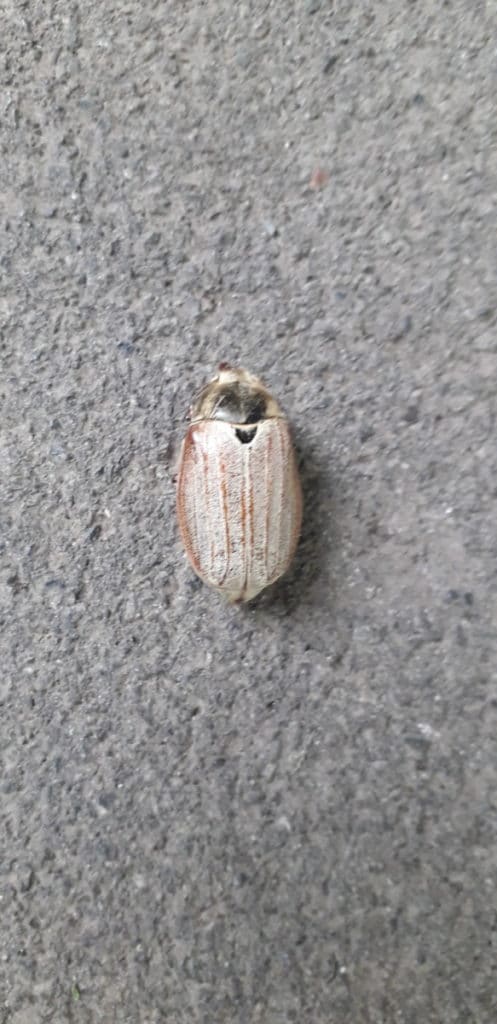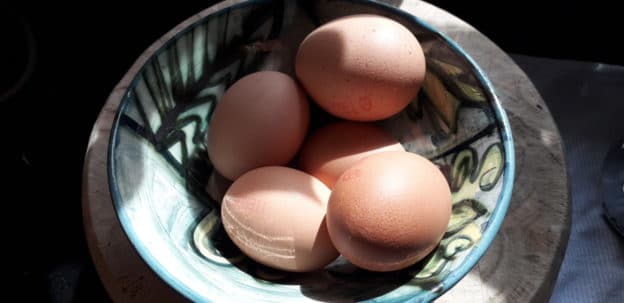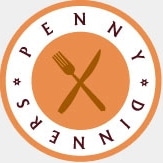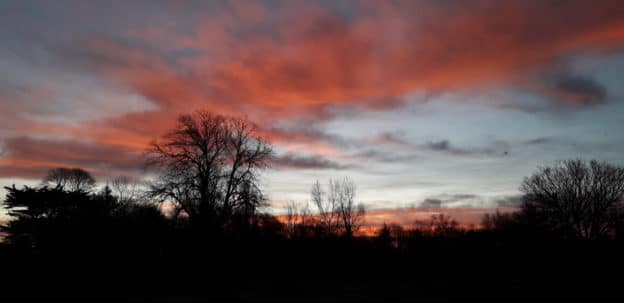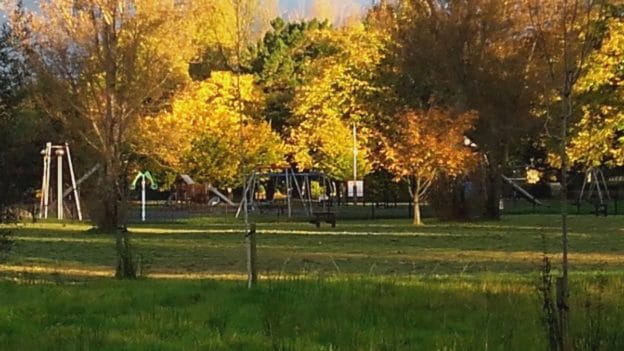The man often has a trolley with him – a black mini-sized one like you see in small supermarkets. It has a distinctive red handle with a yellow trim and looks like it was moulded from the one block of plastic. The trolley comes up to about the hips and has his backpack and a couple of reusable plastic bags in it. I think it must be a recent find, and funnily enough, I haven’t seen one in any of the shops around Tralee but no doubt one of them must use them. I doubt if he ordered it from a catalogue or online, but it would be lovely if that were so.
I saw him one morning push the trolley down the laneway by St John’s Church, which leads to the town park. There are a set of seven or eight concrete steps to navigate, but luckily the church has a side ramp beside them for him to get to the small graveyard below and through the arched gate into the park beyond. The arched gateway is a fine example of the grand entrances that once led to church properties, with granite blocks of a couple of feet high and wide, stacking about 8-feet tall to support a pointed arch that matches the design of the church behind. The inner arch over the cast-iron gate is pointed too, and you can imagine lines of nuns, priests, penitents and children parading through over the years. The park borders several schools and taking pupils to mass at St John’s through the grass and trees would be preferable to trying to control them on the streets. Not being a Tralee native I can only presume this was so, but I went to a convent school next to a church, and we were shepherded through the nuns’ gardens on mass days. When we transferred to the town school, all bets were off on getting us boys up and down the streets to St Colman’s cathedral, once out of the school grounds.
Across from the arched gate is the Garden of the Senses, which was a Millennium project initiated by the then Tralee Town Council. It has plants from around the world and sculptures which evoke our five senses. To the left when entering from the St John’s church side, behind a large bush and accessible only by the winding path is a large, flat granite sculpture on a single leg, that holds it no more than about a foot off the ground. It looks flat, but when you get a get closer you see that the surface of the stone is full of bumps and valleys cut into and over an area of about two square feet. Though I walk through the Garden of the Senses at least once a day, I never take much notice of the sculptures. I presume this large one is for touch. In its centre is a wide circle cut into the granite which works as a birdbath or drinking bowl. This is where I usually see the man with the trolley.
He always has a drink in his hand, the rim of it sticking out from a plastic bag. On some mornings it’s a brown paper bag, just to go with the stereotype. Each day he wears what looks like the same clothes: a grey hoodie under a fairly dirty looking blue rain jacket with the peak of the rain jacket hood coming out over that of the hoodie. His crumpled face is almost like the mask you’d see a 1950’s department store Santa wearing in family photos taken with lucky children. Daisy and I do a couple of laps of the park each day, and I see him nearly every day, now that the mornings are brighter, but I did see him too when the sun still wasn’t up by 8 a.m. Why he’s always out at this time I do not know, but I doubt if he’s sleeping in the park; he must be coming from somewhere, pushing that trolley of possessions.
One misty morning I lost Daisy when coming through the Garden of the Senses, at least I thought she was gone or even stolen. Usually she follows me in her own time, catching up as I walk through the Rose Garden on the other side. She often stops to sniff around the bushes or even chase a bird or two. On this morning she hadn’t reappeared by the time I made it to the path by the Ashe Memorial Hall entrance, where you lose the view of the Garden of the Senses. Not seeing Daisy scares me and I called, expecting her to come tearing out through the gap in the bushes, head up and legs going like the clappers. But she didn’t. I called and called, and whistled and whistled. No sign of her and so I headed back over to the little garden.
Inside I couldn’t see Daisy anywhere and out the back, by the entrance to St John’s, I couldn’t see her either. I started to worry. I called out ‘Daisy’ over and over again, but she still didn’t appear. I get an inner feeling of dread when things go wrong and don’t look like getting better any time soon. That feeling was now rising in my stomach and the fear that someone had dognapped Daisy was taking over. People were stopping and helping, asking other passers-by if they had seen a little dog. If Daisy had run after someone, through St John’s, she might be lost in town, vulnerable to being taken or rolled over by a truck -these were the sort of thoughts making me panic. After a couple of minutes a little old lady stopped and asked what was wrong? I told her, and she asked if that was Daisy over there, pointing into the Garden of the Senses? I looked through the bushes without their leaves to see Daisy munching down on a dinner plate of scraps. Relieved and thanking everyone I went straight over and put the collar around her golden neck. Daisy is such a scavenger she never passes free food, though her bowl at home is always full. What got me thinking though was from where did the plate of food, which looked like bread mainly, come?
I get my answer when coming through a few mornings later and see the man with the trolley breaking up a sliced pan and putting it on the white plate. He has a takeaway tea or coffee waiting on the sculpture and what looks like a roll-up in his mouth. On another morning I see him eating food from a deli keep-hot foil bag, though what it was I couldn’t tell from a distance. I always say hello now, and he usually mutters a reply. The man is there every morning, feeding the birds and having his breakfast al fresco, happy out and not bothering anyone. I wonder if he buys the bread on discount from the supermarkets in the evening and keeps it for the morning feeding?
I see the birdman around town from time to time, but he doesn’t recognise me. Maybe in the mornings he’s coming from a flat up beyond the church, or the homeless shelter not too far away? Who knows where anyone came from or is coming from right now?
What I do know is that the birds of Tralee Town Park do well out of this kind soul and seeing him each day does me good too.
